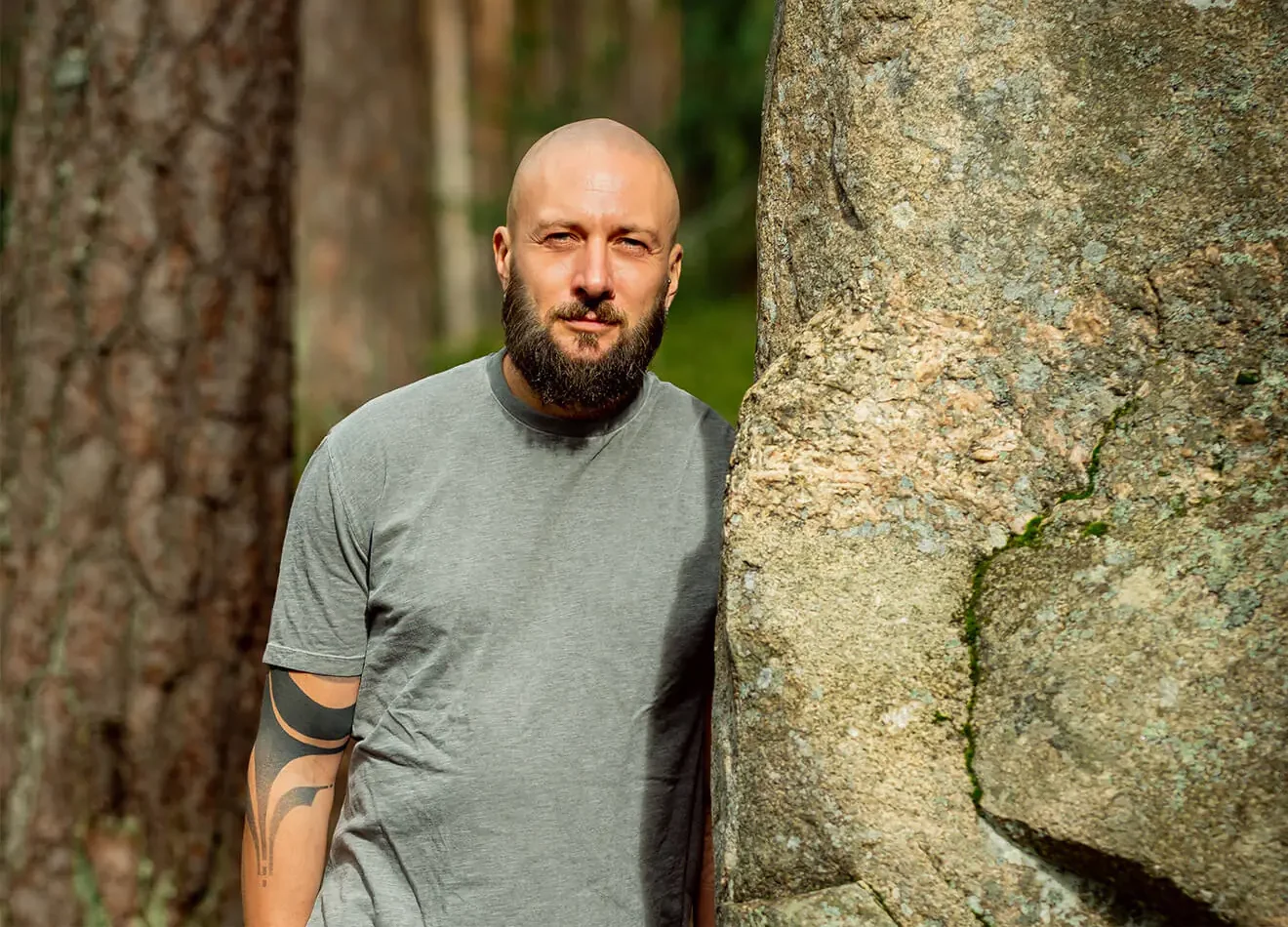
Robert Randma
Robert Randma is a body psychotherapist. In addition to a Master’s degree in psychology, Robert has studied body psychotherapy for over ten years, focusing on developmental psychology, psychomotorics, working through shock trauma, and nervous system regulation.
Robert has been leading body psychotherapy courses in Estonia since 2018 and opened his private practice in 2014. Today, he leads the body psychotherapy institute project in Estonia, bringing to it his extensive studies and experiences from various European countries and schools of body psychotherapy.
Education and qualifications:
- 3-year Somatic Experiencing training (Prof. Sangkasaad, R., Pinto, L., Gomes, S.)
- 1-year Bodynamic Foundation training (Prof. Marcher, Ditte; Marcher, Lisbeth)
- 3-year Bodynamic Practitioner training (TBC 2027, Prof. Marcher & Marcher)
- 3.5-year body psychotherapy training (Prof. Gerken, S.)
- 3-year eclectic therapeutic approaches training (supervisor Biechonski, J.)
- Founding member and leader of the Estonian Body Psychotherapy Association SOMA (www.kehapsuhhoteraapia.ee)
- EABP-accredited body psychotherapist (www.eabp.org)
- Founder and creator of BPTI
About the lecture:
In this lecture, we will explore the unfolding of human experience – from an instinctive being to the development of grounded individual self-awareness. Through the stages of the developmental ego, we will follow how the different levels of the brain – from the brainstem to the prefrontal cortex – sequentially activate, laying the foundation for a person’s psychological and emotional maturity.
The lecture weaves together body awareness, neurophysiology, and developmental theory from somatic psychology. We will look at how the different parts of the developmental ego function in parallel with specific body parts and muscles, and we will explore and experiment with how their activation is linked to the emergence of new psychological functions.
I invite participants to experience the world through different areas of the body to gain a felt sense of the various parts of the developmental ego and their ways of perceiving the world. You may also discover where your developmental ego is strong and which areas might benefit from additional resourcing.
What will you gain from this lecture?
- An understanding of how a child develops their psyche through physical activation and muscle activity.
- Experiential examples of how breathing and body contact influence developmental safety and self-perception.
- An overview of how muscles and the nervous system create the foundation for psychological skills (existence, expressing needs, autonomy, will, sexuality, opinion, performance).
This lecture is intended for therapists, those interested in body awareness, and anyone wishing to better understand child development. You are welcome to discover how bodily experiences shape our inner world and our relationship with the outer world.